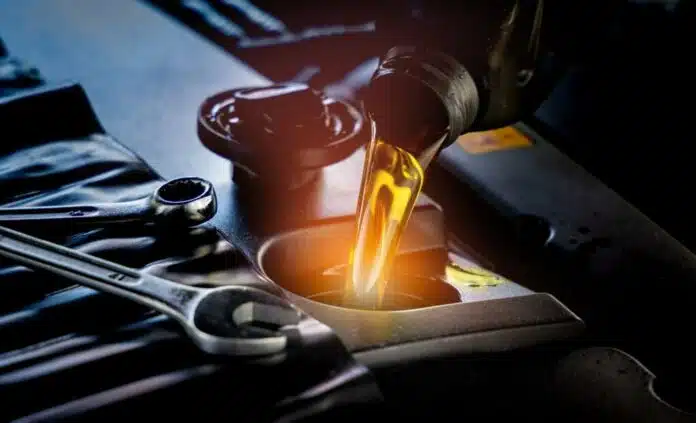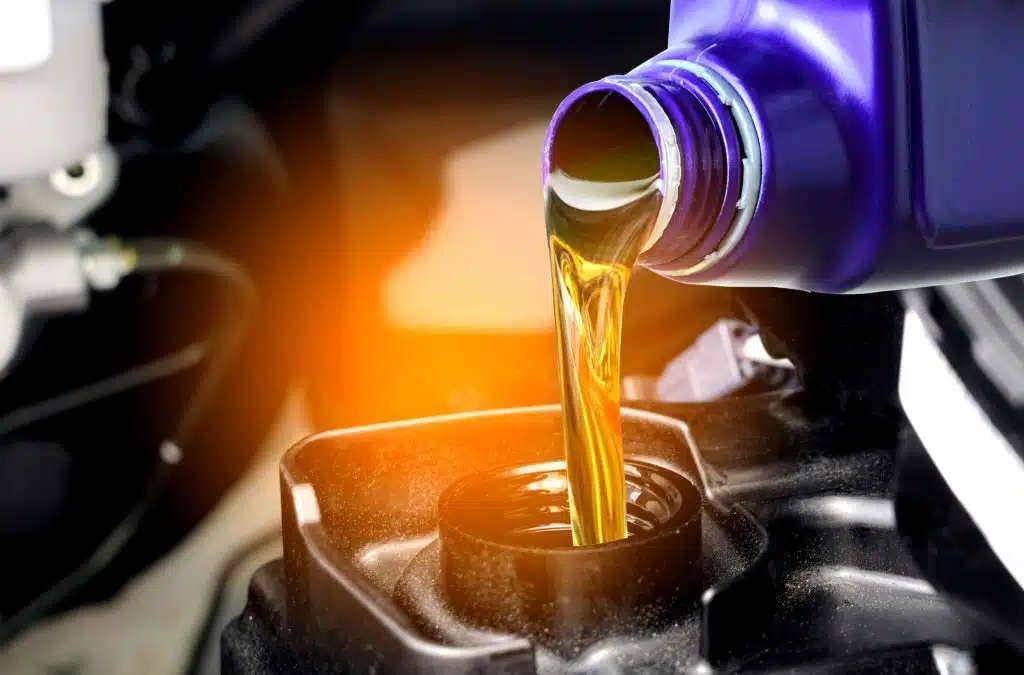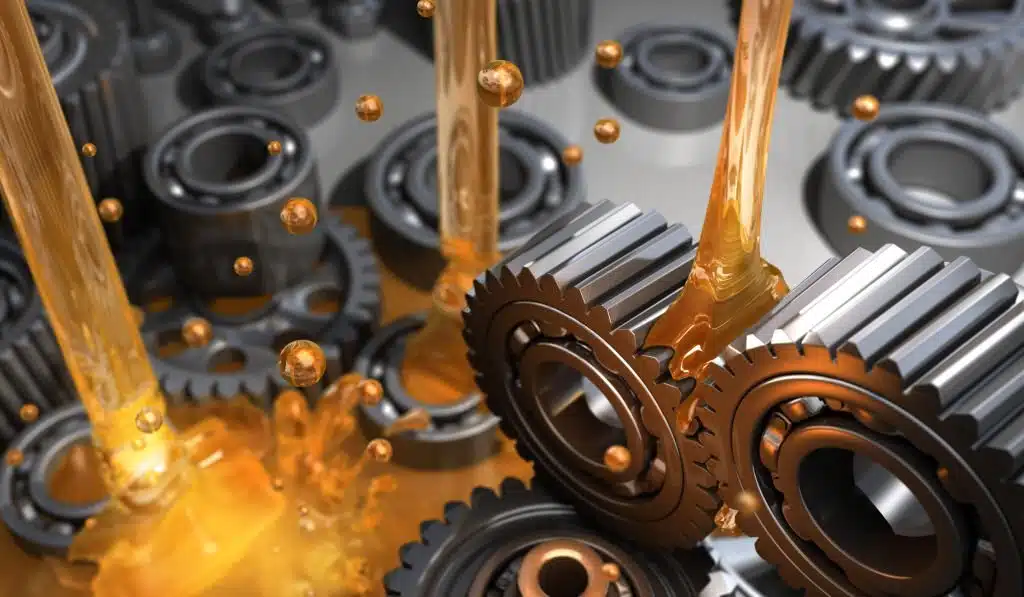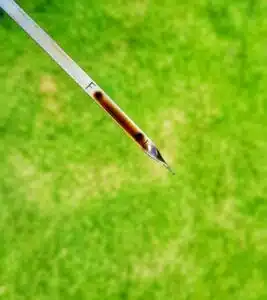
Good oil does not age—that’s a common misconception! Even high-quality engine oil can break down over time. Although manufacturers are generally silent or lack information on engine oil’s lifespan, it can age. This has nothing to do with a lack of quality: even the best engine oil can deteriorate. Find out here what factors influence the lifespan of engine oil and how you can check its quality. Are you ready to get started? Let’s go!
Tip: How to Keep Engine Oil Clean for Longer
Engine Oil Life: The Basics
You are accustomed to encountering expiration dates for food, medicines, and other products in your daily activities. The term itself suggests it: This is the guarantee that you will not have to compromise on the quality of the product in question until the so-called expiration date. Does the medication deteriorate, no longer work, or even become toxic? And how is it that a product is no longer good before the indicated expiration date when the printing on the box is done, or can it promise something else? As you can imagine, the shelf life does not only depend on the product itself and its manufacturing date; external influences such as storage and existing temperatures are also decisive. And what does this have to do with engine oil life? It’s the same thing: engine oil can deteriorate for different reasons, which we will explain.
Can engine oil go bad?

There is no doubt that the answer is yes! However, it should be noted that there is no official expiration date for engine oil in this context. Manufacturers are, therefore, not required to indicate an expiration date on packaging. Some indicate the date of manufacture. However, it is often hidden in combinations of numbers that seem mysterious to the user. For others, it’s the great silence. But how can engine oil expire if there is no expiration date? By deteriorating, of course! If the container is closed, you can expect a motor oil life of 3 to 5 years, depending on the manufacturer’s instructions. If the bottle of oil is already opened, the shelf life is directly divided: in this case, you only have about 6 months left to consume the right oil.
How long does engine oil last in the engine?
If no defects affect the oil, you can rely on the oil change intervals (according to the manufacturer’s instructions!). This is not a specific expiration date but rather the type of engine oil, actual mileage, and driving conditions:
- LongLife engine oils last much longer:
- Thus, an oil change is generally only necessary after having covered 30,000 km or after 2 years.
- Traditional engine oils (without LongLife) should be changed much earlier, after around 15,000 km.
- If you do a lot of stopping and starting, driving short distances, or if faults are involved, the engine oil can deteriorate more quickly.
- Pro Tip: To determine the oil change intervals applicable to your vehicle, consult the owner’s manual. In modern vehicles, the onboard instrument tells you how long your engine oil will last. Temperature and consistency are monitored and analyzed. If the engine oil lubrication is poor, a corresponding warning light comes on.
Here’s Why You Need to Monitor Engine Oil Life
What happens if you pass the engine oil expiration date? Does it lose its effectiveness or does it become toxic? (Which brings us back to the drug comparison.) Actually, the answer is both! Whether 5W-30 or 5W-40, if the oil is heavily contaminated or something is wrong with its composition, it automatically loses its lubricating properties. And from there, it becomes toxic to all the components involved. In fact, the main function of engine oil has been put out of service. If lubrication no longer occurs correctly, friction occurs. This subsequently leads to material damage. In the worst case, the engine is damaged.

Why does engine oil go bad?
You don’t have to be an automotive professional to know that. Inside the engine compartment, extreme conditions reign supreme, and engine oils must not only handle full throttle but also survive this harsh environment. So even the best engine oil becomes contaminated over time by high temperatures, combustion residues, etc. If the degree of impurity is such that the necessary lubricating properties can no longer be guaranteed, you must change the oil. In addition to these natural wear processes, various defects can contaminate oil. For example, a worn cylinder head gasket can cause cooling water to pass into the engine oil. This has disastrous consequences for lubrication.
- Pro Tip: Oil’s lubricating properties degrade over time not just in the engine compartment. In an open tank, you can hardly prevent oxygen and moisture from entering, not to mention possible temperature fluctuations, which hurt the life of the engine oil. In a closed container, you cannot stop the chemical processes either: Even in the best storage conditions, the additives will sooner or later volatilize.
How to check engine oil life?
When engine oil deteriorates, the composition of the lubricant changes accordingly. But how do you check engine oil and know if it has reached its useful life? Here are the answers to these questions.
Check engine oil – the quickest way.
Have you stored engine oil and want to know if it is still usable? Are you wondering if your engine oil is still good? There is a very simple way to do this: look at the consistency and color of the lubricant. So what does it look like?
- Is it light brown and does it not contain suspicious particles?
- It appears that the engine oil has not yet reached its expiration date.
- Or does it look milky and cloudy?
- There has been some water and you have to assume that the engine oil has lost at least some of its lubricating properties.
- Does the liquid contain small pieces?
- It’s as if the additives have been removed from the mix.
- The more contaminated the engine oil, the darker the mixture:
- If the engine oil is black like coal or gives off a very unpleasant odor, it means there is a lot of oxidation and the oil needs to be changed.
- Don’t ignore metal shavings in your oil or filter! They could signal serious engine damage.

- Good to know: Modern vehicles inspect you. You will receive a message and warning light if the engine oil life is shorter than the scheduled oil change interval. Parameters such as temperature and oil viscosity are taken into account.
Check (have checked) the quality of the engine oil.
You can request a more in-depth analysis if you want to know for certain. You can often go through the garage, which will send a sample to a specialized laboratory for analysis. These laboratories offer complete oil control kits, including sample containers, sample accompanying sheets, and more. Mechanics check the viscosity of engine oil using sophisticated analysis methods, such as a CSS viscometer. To estimate the life of engine oil, they also employ other methods to determine the antioxidant content, such as infrared spectroscopy, which analyzes individual oil molecules.
- Did you know that test strips are also on the market for a slightly less precise check of engine oil quality?
Store engine oil correctly and increase engine oil life: Here’s how!
If you want to increase the life of your engine oil, you need to store it correctly and not for too long.
For how long can engine oil be stored?
As we said, you can theoretically store your engine oil for 5 years in optimal conditions and without opening it. However, you must remember that engines are evolving and oil compositions are becoming increasingly sophisticated. Therefore, stored engine oil may not deteriorate after 5 years, but it may not be the best for your vehicle. Therefore, we advise you: If you do not have a large workshop but want to change the oil every two years as an amateur DIYer, it is best to get the right amount every two years.
- Tip: If the engine oil is expired, you should dispose of the used oil. To do this, you can go to a recycling center.
How to store engine oil correctly
Lubricating oils are sensitive to oxygen, water, and temperature. Protect your engine oil by storing it in a way that minimizes exposure to these negative influences. But that’s not all: you shouldn’t forget about the environment. You must ensure that you do not unintentionally release hazardous substances into the environment. It is therefore preferable to store engine oil like this:
- Ensure the environment is clean, dry, and not subject to strong temperature variations.
- Even in closed containers, water, and oxygen can enter engine oil if the environment is humid.
- The storage location is preferable to a relatively constant temperature, which does not fall below 5°C or exceed 30°C.
- Depending on the viscosity class, you must adjust the room temperature accordingly.
- It is best to store engine oil in a place not exposed to direct sunlight.
- A dry, clean cellar is ideal for this.
- Storage should be in suitable containers (preferably in the original closed packaging) that are not cracked or leaking.
- It is recommended that oil drums be stored in a lying position.
- Finally, the oil should not be stored near a heat source (gas boiler, heater, etc.).
- Tip: Correct storage directly impacts engine oil’s lifespan, so it should not be neglected. If you have different oils stored in your cellar, it is best not to mix engine oils. This also affects the lubricating properties.
Now it’s your turn: Have you ever had doubts about the expiration date of the engine oil you have stored? How did you check the quality of the engine oil? Or maybe you inadvertently used poor-quality oil and suffered consequential damage.
We look forward to reading your comments!
Leave a Reply